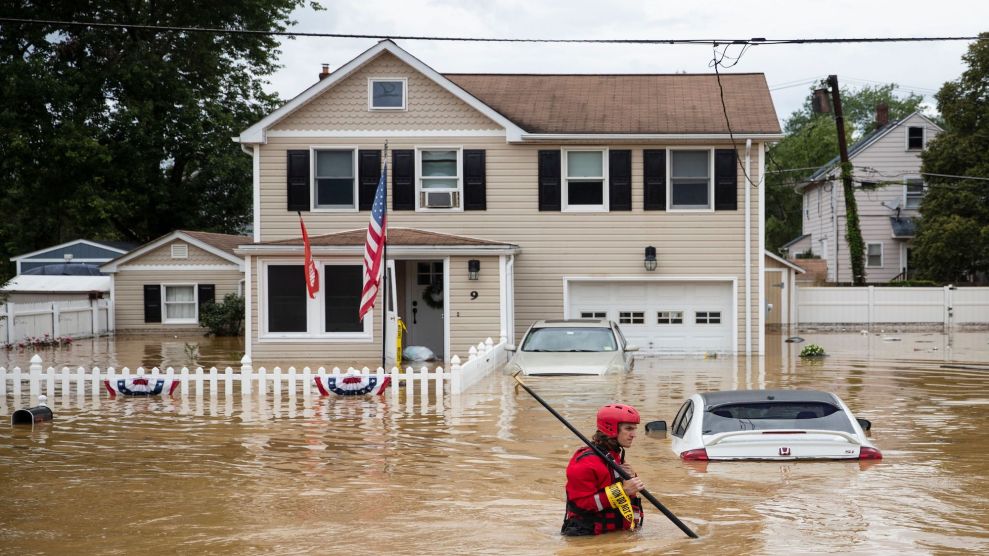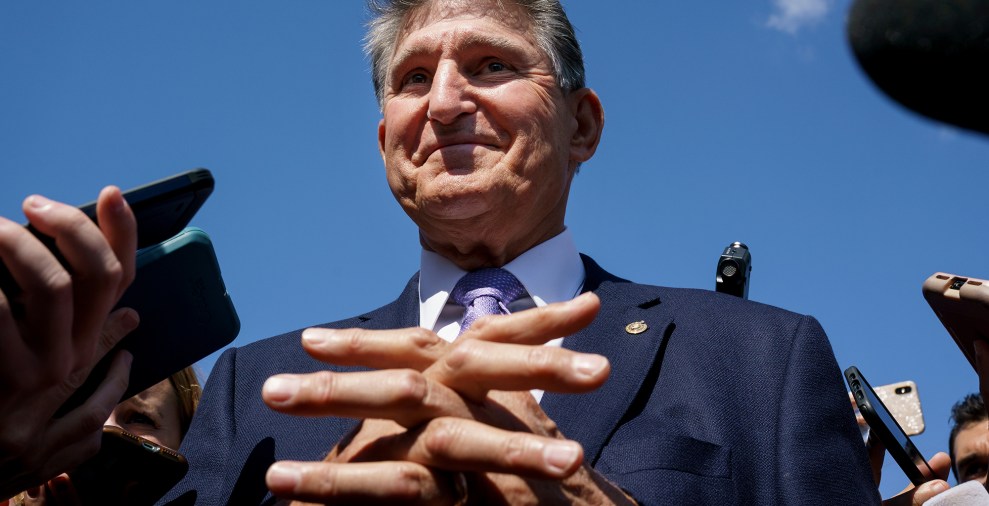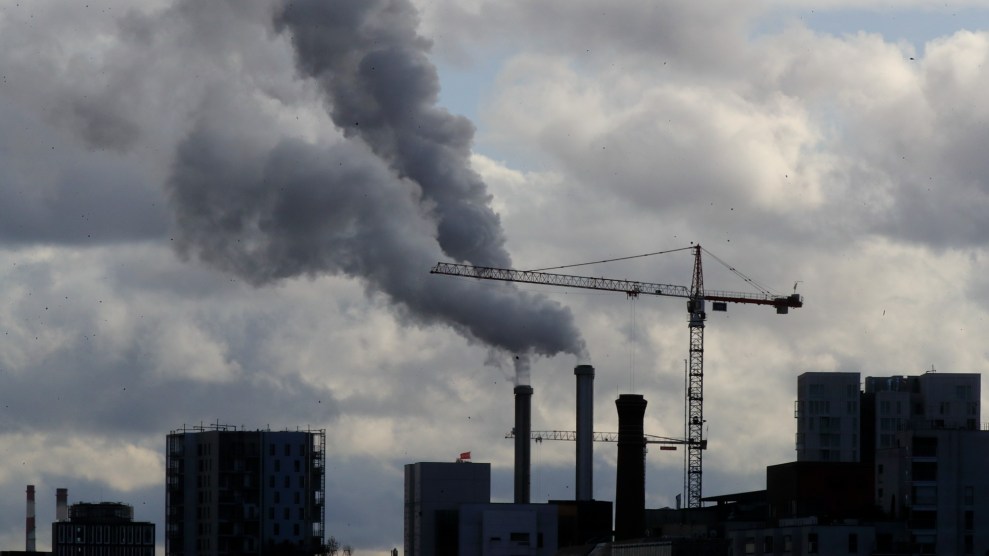
A New Market Volunteer Fire Company rescue crew member wades through high waters following a flash flood, as Tropical Storm Henri makes landfall, in Helmetta, New Jersey. August 22, 2021. Tom Brenner/AFP/Getty
This story was originally published by HuffPost and is reproduced here as part of the Climate Desk collaboration.
Climate change could bombard the US financial system on many fronts, and the nation’s growing dependence on natural gas for heating and electricity requires particular scrutiny as regulators scramble to catch up on the threat.
That’s the conclusion of a landmark report from the Financial Stability Oversight Council, the federal entity established after the Great Recession to guard against future economic disasters. It marks the first time the council has deemed climate change an “emerging threat” to the US economy since the council was created as part of the Dodd-Frank financial reforms of 2010.
“Are we behind? Of course we are,” a senior administration official on the council, who declined to be named on the record, said on a press call. “This is the starting gun going off for the US financial regulatory system.”
The assessment came just days after British regulators called on companies to disclose strategies to swiftly zero out planet-heating pollution and their European Union counterparts outlined plans to test banks’ ability to withstand climate-related shocks. Emphasizing the political challenges the US faces in confronting the crisis, the Biden administration’s plan to cut roughly one-third of the nation’s emissions appeared to die in Congress, setting policymakers scrambling for alternatives.
“This is the step we’re taking to catch up and put ourselves in a leadership role internationally, which is where we want to be,” said the staffer, who has worked at FSOC for 10 years. “And this is the way to do it.”
The myriad ways warming-fueled disasters, or hapless attempts to avert them, could upend the US economy unfold in dry, sober language across the report’s 133 pages.
Financial contagion could spread from the physical wounds of climate change. Extreme weather and flooding may render regions of the country too costly to insure, condemning entire communities—households, businesses and governments alike—to economic and financial precarity with unclear options. The mounting toll of physical damages could wipe out the income properties generate or destroy the value of assets used as collateral, “posing credit and market risks to banks, insurers, pension plans, and others,” the report states.
Another threat could come from the solution to climate change itself. With each passing month that pollution from burning fossil fuels and felling forests for cattle ranches increases, the speed of change that’s required to avert cataclysmic temperature rise climbs. If countries take divergent paths and fail to coordinate, it could “sow confusion or create large inefficiencies, thereby possibly straining the financial system.”
The rapid shifts could also quickly make previously valuable investments virtually worthless. “Delays and years of complacency eventually require larger, more disruptive policy adjustments … which would likely have more dramatic effects on economic activity and asset values.”
Coal, the report notes, is already widely viewed to be in irreversible decline, with 65% of US plants shutting down over the past decade. But in 2019, the US had nearly 200 gas-fired plants under construction. While natural gas produces less carbon than coal, it still spews tons of climate-changing pollution, including methane, which is an 86-times more potent heat trapper over a two-decade period than CO2.
Reaching the US goal of net-zero emissions by 2050 “would require sizable reductions in the use of natural gas,” the report warns, suggesting the value of gas assets could plummet even more chaotically than coal.
“A thorough assessment of the potential for stranded assets in these sectors should be a priority for financial institutions in their risk management processes and a component of a regulatory scenario analysis,” the report states. The senior official declined to comment further.
The report, which President Joe Biden called for in an executive order this spring, is “unprecedented” and “sends a strong signal to industry, to Wall Street, that regulators are waking up to this issue and taking it seriously,” said David Arkush, the managing director of the climate program at the consumer watchdog Public Citizen.
Still, he said, “It is extremely far short of what is needed. It almost reads to me like the memo that should have started this process in May when the president issued the executive order.”
The document could have offered more prescriptive solutions, including calling on the Federal Reserve to cap how much of an investor’s portfolio can include unmitigated fossil fuels or proposing banks that own risky oil and gas assets keep a certain amount of cash on hand, said Ben Cushing, the campaign manager of the Sierra Club’s fossil-free finance program.
“This report makes it clear that financial regulators understand the need for action to ensure that the climate crisis doesn’t cause the next financial crisis,” he said in an emailed statement. “However, by leaving out key risk-reduction tools, it is not treating the problem with the urgency it deserves.
Simon Johnson, an economist at the Massachusetts Institute of Technology, said he was “optimistic that the needle is beginning to move.”
Asked whether the fact that US financial regulators are only beginning this process now, when the number of billion-dollar weather disasters increases each year and United Nations scientists say the emissions crisis has reached a “code red” level, the senior administration official said: “I reject that conclusion.”
“The whole purpose of this is to communicate the opposite,” the official said. “We are ready. Ready means we’re engaging in a significant way.”















